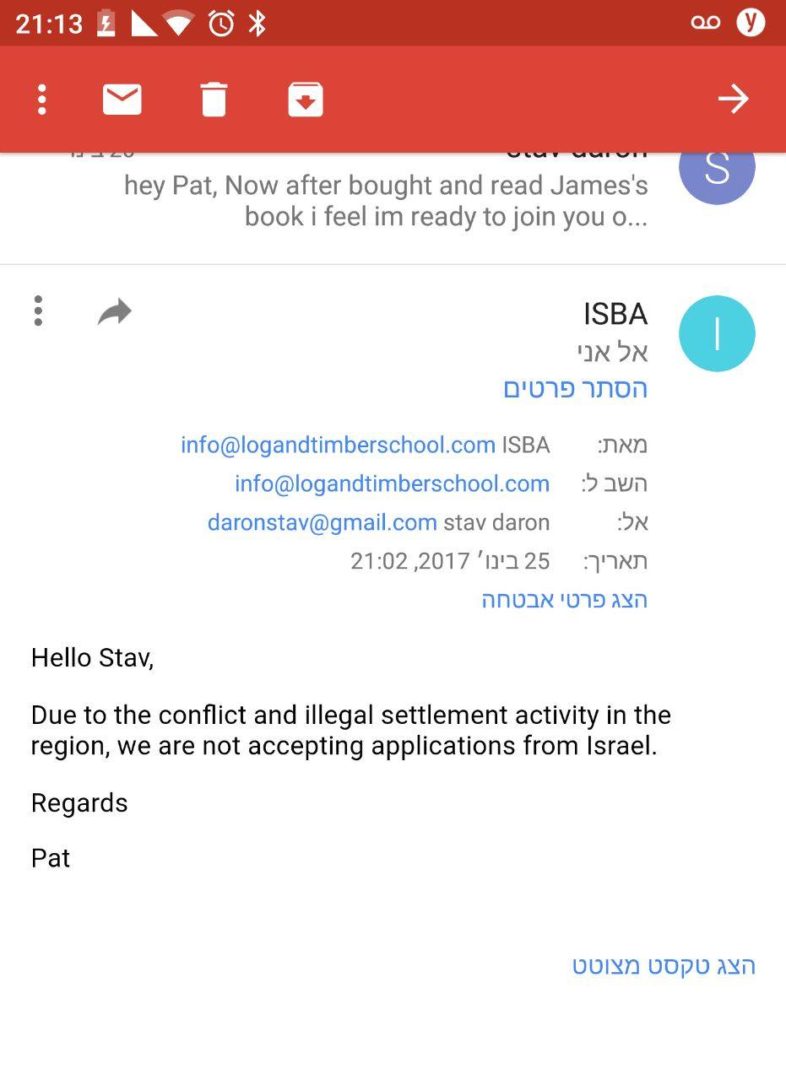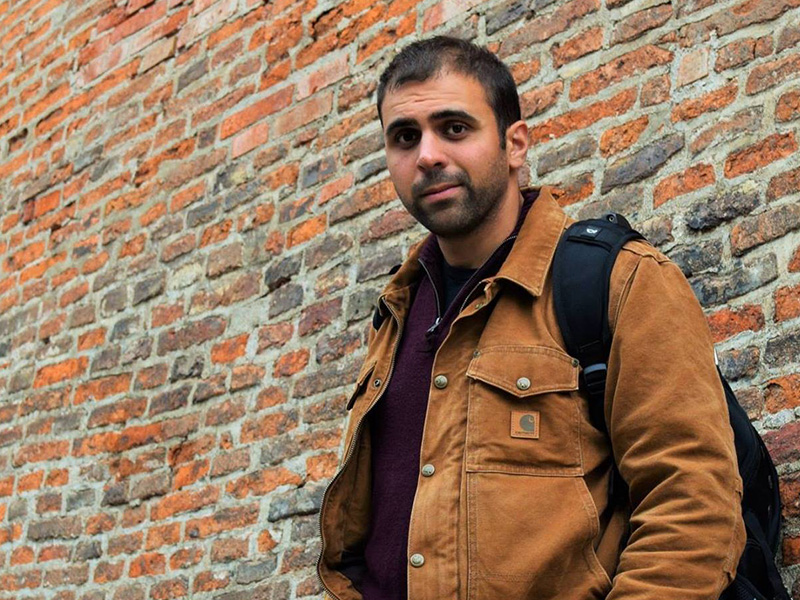Under the glare of international publicity and pressure from three Canadian Jewish groups, a private B.C. construction school reversed its decision to bar an Israeli student because of his nationality based on a policy it instituted in response to a recent UN resolution.
Stav Daron, 27, an Israeli civil engineering student and amateur carpenter applied to take a course next fall at the Island School of Building Arts (ISBA) on British Columbia’s Gabriola Island. Patricia Rokosh, manager of school and student services, at first rejected Daron because he was Israeli, citing school policy. But hours after his story spread via news outlets and social media, the school dropped the policy, apologized and said Daron would gladly be accepted by the school.
READ: VANCOUVER EXHIBIT CAPTURES CANADA’S RESPONSE TO SHOAH
In email correspondence to Daron on Jan. 25, obtained by the Jerusalem Post, Rokosh said that although Israelis had attended in the past, the school was “not accepting applications from Israel… due to the conflict and illegal settlement activity in the region,” adding, “This is a question of staying in line with our moral compass, which will always be important to us. We are still inclusive and cannot support that which is not inclusive.”
ISBA founder James Mitchell told CTV News the school had banned Israeli students because he thought it would be breaking the law by accepting them.
“Well it was a UN resolution by the Security Council that was done just last December,” Mitchell said, referring to UNSC Resolution 2334 condemning Israeli settlements that the outgoing Obama administration allowed to pass by not invoking America’s veto. “The law was condemning that it was illegal to build on occupied land in Israel.”
Mitchell admitted the policy was a mistake. “I’m wrong in that, but it wasn’t done under any malice, it wasn’t done under any prejudice,” he said. “I’d just like to say I’m sorry to all Israeli people.”

After the Post published a story on Daron’s rejection Jan. 31, and B’nai Brith Canada, the Centre for Israel and Jewish Affairs (CIJA), and Friends of Simon Wiesenthal Center (FSWC) all contacted the school that day to express their outrage.
In response, the school administration quickly rescinded its decision. In an email to The CJN, Rokosh said the school had, “after significant thought and listening to all interested parties, decided to rescind any restriction placed on accepting students from Israel and apologize for any inconvenience. ISBA remains acceptant to all and will continue to do so without restrictions.”
B’nai Brith said it sent a legal letter to the school, noting that refusing to provide a service on grounds of race, religion, ancestry or place of origin is prohibited by the B.C. Human Rights Code. At the same time, CIJA corresponded with ISBA, as well as with the B.C. Ministry of Advanced Education and the B.C. premier’s office to convey its concern and outrage. The FSWC also called the ISBA.
FSWC president and CEO Avi Benlolo said that when he spoke to the school, Rokosh “admitted, ‘This was a misinterpretation of a UN declaration and a mistake on ISBA’s part.’”
FSWC said it “believes this incident is cause for serious concern about the harm done by UNSC Resolution 2334 in encouraging a rising tide of anti-Semitism.”
B’nai Brith CEO Michael Mostyn, lambasted ISBA. “The fact that an educational institution in Canada would have the temerity to hold such a discriminatory policy is outrageous,” he said. “The school’s immediate reversal, when confronted with the truth of its actions, only illustrates the immorality of anti-Israel bias.”
CIJA CEO Shimon Koffler Fogel, was equally disgusted. “In my 30 years of working for our community, I have never come across a single incident of a Canadian school adopting such a policy,” he said. “Shockingly, in its reply to CIJA’s intervention, the school openly admitted that they boycotted Israeli applicants… While we are pleased that swift intervention has led to a positive outcome… I won’t mince words: this was a disgusting and shameful attempt to ban an Israeli simply for being Israeli. We cannot and will not let such blatant discrimination go unchallenged.”
In a B’nai Brith release, Daron said he was “delighted by the outpouring of support,” and that although he had intended to enrol in a four-week wood construction and design course, he no longer wants to attend.
“I don’t really want to go to ISBA anymore,” he told The CJN, noting that he had already purchased a textbook by Mitchell for $70. “After the treatment I got there, I’d prefer to find another school. I think ISBA got what it deserved, and I’m happy they got a bit of bad press after the way they behaved. Now I’m ready to move on and let it go.”
Mitchell founded the ISBA in 1997. It specializes in nail-less log “joinery” and wood stone construction. On a web page for international students, it says joinery “is a visual medium with language playing a minor role… don’t worry. Students from distant countries in all corners of the globe have attended our school. We find our international students add to the eclectic mix of our school and community.”







